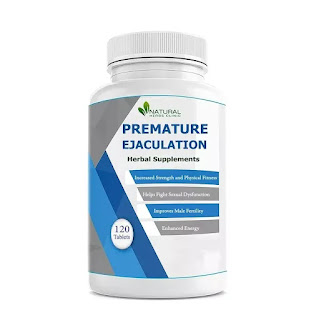What is the Best Herbal Remedy for Abdominal Adhesions?
Introduction
Abdominal adhesions are a common post-surgery complication where scar tissues form and bind organs or tissues together, causing discomfort and pain. In this comprehensive guide, we'll explore the best herbal remedy for abdominal adhesions and Diet provide insights on managing this condition naturally.
The Power of Herbal Remedies
Herbal remedies have been used for centuries to treat various health issues, and abdominal adhesions are no exception. These natural solutions offer an alternative to surgery or medication, providing relief and promoting healing. Let's dive into some potent herbal options to address abdominal adhesions effectively.
Understanding Abdominal Adhesions
Before we discuss herbal remedies, it's essential to understand what abdominal adhesions are and what causes them.
Abdominal adhesions occur when scar tissue forms between abdominal tissues and organs. This can result from surgeries, infections, or inflammation. The adhesions can cause pain, digestive problems, and even fertility issues in severe cases.
Natural Treatment for Abdominal Adhesions, Home Remedies for Abdominal Adhesions, Abdominal Adhesions Treatment
The Best Herbal Remedies
1. Turmeric
Turmeric, with its active compound curcumin, is a potent anti-inflammatory and antioxidant herb. It helps reduce inflammation and pain associated with abdominal adhesions. You can consume turmeric as a supplement or add it to your meals for its health benefits, Home Remedies for Abdominal Adhesions
2. Ginger
Ginger is another herb known for its anti-inflammatory properties. It can alleviate abdominal discomfort and reduce inflammation. Ginger tea or adding fresh ginger to your diet can be an effective way to incorporate this herb.
3. Aloe Vera
Aloe vera contains compounds that promote tissue healing and reduce inflammation. Applying aloe vera gel topically to the affected area can soothe pain and discomfort caused by abdominal adhesions.
4. Slippery Elm
Slippery elm is a herbal remedy that can help with digestive issues associated with abdominal Adhenical. It forms a protective layer in the digestive tract, reducing irritation and discomfort.
5. Marshmallow Root
Marshmallow root has mucilage properties that can soothe and protect irritated tissues. It can be consumed as a tea or taken in supplement form to alleviate abdominal adhesion symptoms.
6. Peppermint
Peppermint is well-known for its ability to relieve digestive discomfort. It can help with bloating and gas, which are common issues associated with abdominal adhesions. Peppermint tea or essential oil can provide relief.
7. Chamomile
Chamomile has anti-inflammatory and calming properties that can help reduce abdominal pain and discomfort. Drinking chamomile tea can be a soothing remedy for abdominal adhesions.
Frequently Asked Questions (FAQs)
Q: Are herbal remedies safe for everyone?
A: While herbal remedies are generally safe, it's essential to consult with a healthcare professional before starting any new treatment, especially if you're pregnant, nursing, or taking medications.
Q: How long does it take to see results with herbal remedies?
A: Results can vary from person to person. Some may experience relief within a few days, while others may take several weeks to notice improvements.
Q: Can herbal remedies replace surgery for abdominal adhesions?
A: In some cases, herbal remedies may help manage symptoms, but they may not eliminate adhesions entirely. Consult with a healthcare provider for a comprehensive treatment plan.
Q: Can I use multiple herbal remedies together?
A: Combining herbal remedies should be done with caution and under the guidance of a healthcare professional to avoid potential interactions.
Q: Are there any side effects of using herbal remedies?
A: Herbal remedies are generally safe, but some individuals may experience allergic reactions or gastrointestinal issues. Always follow recommended dosages and stop use if adverse effects occur.
Q: How can I incorporate these herbs into my daily routine?
A: You can use herbs in various forms, such as teas, supplements, or incorporating them into your meals. Consult with a herbalist or naturopath for personalized guidance.




Comments
Post a Comment